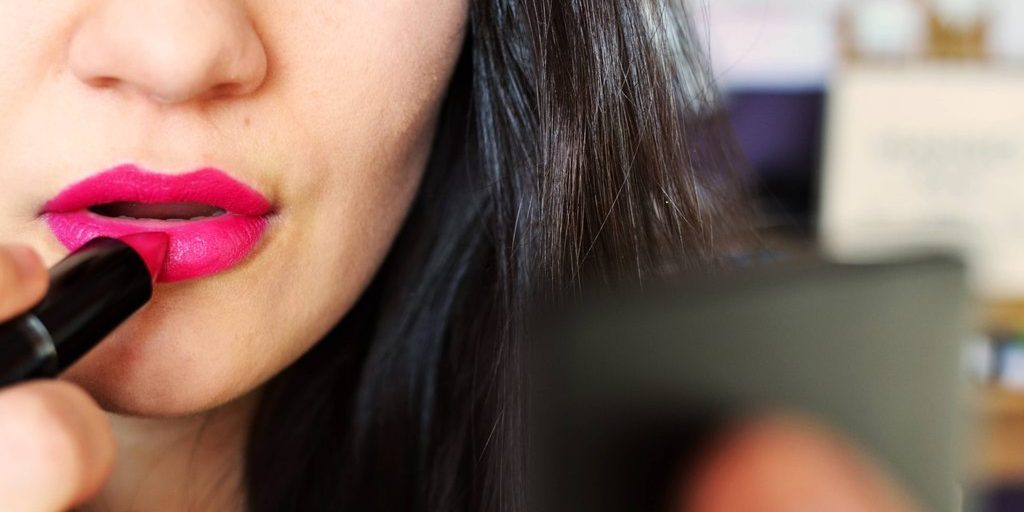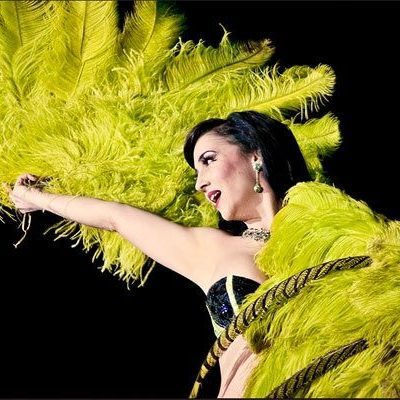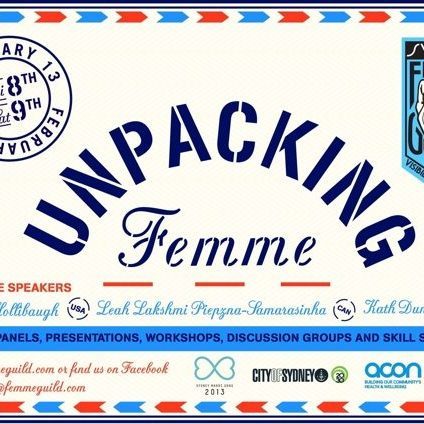 Let’s talk about Femmes. Seriously
Let’s talk about Femmes. Seriously
There’s been so much written about the Masculine of Center (MOC) experience – an umbrella term for women who lean toward the masculine side of the gender scale and identify as stud, aggressive/AG, dom, macha, tomboi, trans-masculine, butch etc., — that perhaps it’s time to focus on another side of our community – the Femme.
As a larger, somewhat more ‘masculine’ looking butch woman I personally have walked through the world appearing fairly obviously and stereotypically gay – unless you are clueless. So I, like many MOC individuals, have experienced blatant homophobia of all sorts with stories and scars to bear.
To a certain extent, we absolutely should honor and need to give voice to MOC individuals that have seemingly bared the brunt of homophobia.
But just because people in our community who look more stereotypically ‘gay’, be-it more MOC individuals or effeminate looking men, have possibly endured more obvious homophobia that doesn’t necessarily equate to more pain – even if their scars from discrimination are more apparent .
And isn’t there often, I say often not all the time, a certain degree of resentment, bias and arrogance from MOC individuals towards those in our community who are also gay/queer but may appear to others as ‘straight’ because they supposedly have not had to walk such an arduous path?
I know I’ve had my personal resentments over the years. But then I started thinking about how messed up and divisive this sort of thinking can be. Why is my pain somehow greater and why would I be more legit as a ‘real’ lesbian than any other queer out there merely because of the scars I bare? Perhaps it’s time to separate the personal from the political.
Just because I am not a ‘stereotypical’ lesbian physically, does not mean I am any less gay. I am not bi. I am gay. Period.
After speaking with numerous women that identify as more femme I discovered that while the more MOC individuals do often encounter a more personalized in-your-face homophobia, femmes experience homophobia and discrimination too – it’s just disguised perhaps in other forms.
One of the biggest is the feeling of invisibility within their own community and the outside world plus a feeling of exclusion. And with that comes a feeling of being somehow less important and their voices less impactful.
This sentiment is something heard over and over.
Just because a woman looks a certain way has nothing to do with her sexual orientation and life experiences.
In addition, most femme identified women do experience and witness homophobic discrimination – and the content of what they witness and hear is typically unfiltered because people are unaware their audience is queer so the homophobia flows freely.
“Because people don’t know that I’m gay, they are much quicker to express their true feelings about homosexuality. I’ve overhead several conversations between men bashing gay men and the gay community, and all the while they have no idea that I’m gay.” – remarked Cara Cerrito.
When femmes that are assumed to be straight come out, they also often endure disrespectful and ignorant comments such as ‘you look so straight’ or ‘you just need to meet the right man’ or ‘you’re so pretty, how can you be gay?’
“I think invisibility is a big thing that people ignore or only see as an asset. Like ‘you can hide I can’t’ except what if you don’t want to hide or be hidden? Or what if you don’t want to listen to stereotypical homophobic comments because people assume you’re straight? Or listen to people tell you how easy you have because you don’t ‘look gay’ or that ‘you’re too pretty to be a lesbian’.” -commented Dalila Ali Rajah adding, “I had a security guard at PRIDE of all places say to me ‘Dear God, please don’t tell me you’re a lesbian’. I said ‘Yes I actually am’ to which he followed with, ‘I’m so sorry, but what a waste’. My response – ‘not to the ladies’.”
Michelle Nixon admits she can easily ‘pass’ from the gay world to the straight world with no one assuming she’s queer. But as an openly gay woman who looks ‘straight’, she continually has to come out.
“I have a British accent, so I often get asked a lot of personal questions from random people in random situations, mostly from the older generation. Being a ‘Femme’ I am usually asked if I moved to America for a special guy in my life. If I say no, then the follow up is more often than not, don’t worry, you will meet him. I have to in that moment decide whether I want to come out, or be agreeable. I have a harder time coming out to the older generation than people my own age. I guess I assume they won’t understand, or ultimately if they do find out I am gay they will prejudge my lifestyle. As a femme, I even fly under those with the best ‘gaydar‘. I have to constantly come out to the straight and gay community. This is not a hardship or a struggle, just a fact of the femme life”.
Think about your coming out experience(s) and imagine as an openly gay person who’s not typically recognized as queer, having to continually decide daily to come out. It takes courage.
And let’s not forget homophobia when broken down is just a branch of sexism in our misogynistic culture that dictates these rigid duelist roles. More femme looking women are supposedly accepted, at least in the straight world, because they apparently ‘look and play the part’ of what a woman is suppose to be in our culture. While MOC individuals are condemned because they do not fall into these male contrived ideas and images of femininity. Both sides lose.
“Being femme is not a monolithic experience. And more specifically my experience as a femme lesbian is fundamental to my daily lived experiences with sexism, homophobia, authenticity and misogyny – products of patriarchy that place masculinity as something that is more desirable, authentic, and valuable.” – commented Katey Pants.
Homophobia and sexism exist in the straight community and within our community. When we adopt these false concepts of what someone should look like, what category they fit into and how they are suppose to behave, we immediately create prejudice and discredit and invalidate their experiences. Perhaps before we assume we know someone and pass judgment based on appearance remember not everyone fits into a box. We have no idea what that individual has been through.
Footnote: All women quoted in this blog identify as femme on some part of the femme spectrum.



